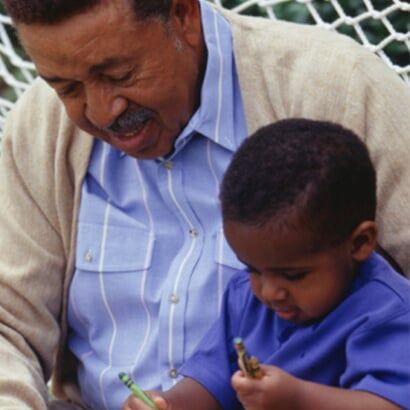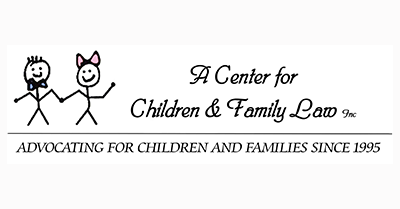Guardianship in Southern California
Guardianship
Grandparent/Nonparent Rights

What is a Guardianship?
The court gives legal responsibility over the care and protection of a child to someone other than the child's parents. Parental rights are suspended (not terminated) while the guardianship
is in place.
The guardian can then provide the child with health insurance, enroll the child in school; receive benefits on behalf of the child, etc.
The guardian can then provide the child with health insurance, enroll the child in school; receive benefits on behalf of the child, etc.
Who needs a Guardian?
A child under the age of 18 years whose parents can no longer provide care for him or her for any reason (such as death, military obligation, incarceration or the parent is unavailable or unwilling to parent the child), or if it would be detrimental for the minor to be in their parents care, or the child has been in a non-parents care for a significant period of time and removal from that placement to a parents care would be detrimental to the child.
What must the Guardian do?
A Guardian must take care of the child's needs including: food, shelter, education, medical and dental care, safety, and physical or emotional growth.
The child's parents are still required to provide financial support in most cases.
The child's parents are still required to provide financial support in most cases.
Who Can Be A Guardian?
- Relatives
- Family Friends
- Interested person over the age of 18
The Guardian cannot have been convicted of a felony or adjudicated disabled.
Can a Guardian Adopt the Child?

Yes, the Guardian can start a proceeding to adopt the child and the Court must consider:
- Whether one or both parents have legal custody of the child.
- Whether the child has been in physical custody of the guardian for more than 2 years or the parent has not communicated or financially supported the minor child for a period of 6 months and the child has been in a non-parents care for at least 6 months.
- Whether or not the child would benefit from being adopted by the guardian. (In making this decision the court looks at factors relating to the best interest of the child).
What is the Difference between Adoption and Guardianship?
A guardianship does not end the parent child relationship. It only establishes another separate legal relationship between the guardian and the child. A guardianship can stay in place until the minor turns 18 years old or until the Guardianship is no longer necessary.
Grandparent/Nonparent Rights
On the other hand, adoption permanently ends the biological parent's rights and obligations. The adopting parents become legally the child's parents with all the rights and responsibilities as a parent.
Who may request nonparent visitation with a minor child?
Grandparents,
relatives, step parents and any person having an interest in the
welfare of the child, including nonrelatives and prior Guardians.
When may a request for nonparent visitation with a minor child be made?
Usually a request
for nonparent visitation is made in the course of a proceeding in
which custody is at issue. For example a Divorce/Dissolution of
Marriage action, a Paternity case, a Family Law Domestic Violence
Restraining Order action, a Guardianship case, or a Juvenile
Dependency case.
However, a petition for nonparent visitation may also be filed when custody is not at issue. A grandparent may file a Petition under Family Code section 3104 and ask the Court for the right for grandparent visitation. Also, in the event either parent of an unemancipated minor child is deceased, a Petition may be initiated for visitation by the children, siblings, parents, and/or grandparents of the deceased parent at any time under Family Code section 3102.
However, a petition for nonparent visitation may also be filed when custody is not at issue. A grandparent may file a Petition under Family Code section 3104 and ask the Court for the right for grandparent visitation. Also, in the event either parent of an unemancipated minor child is deceased, a Petition may be initiated for visitation by the children, siblings, parents, and/or grandparents of the deceased parent at any time under Family Code section 3102.
What has to be done to request nonparent visitation?
First, a nonparent must determine if
they need to file a joinder with the Court. If there is a
current custody case, pending,
a motion for Joinder must be
filed with the Court requesting the nonparent to be joined as a party
to the current proceeding. As stated above, there are different
types of nonrelative visitation. Each type of nonrelative falls under
a different family code section and there will be different standards
for each nonrelative under the Family Law code. For example,
Grandparents may seek visitation orders under Family Code
section 3103 by joining into current proceeding.
However, if there is no current custody case pending then a Grandparent petition is filed under Family Code section 3104. Additionally, in a case of a deceased parent, A Motion for Joinder is not required. A non-relative may file their petition for visitation under Family Code section 3102 at any time.
Next, a Petition must be filed with the Court requesting you be awarded nonparent visitation with the minor child. Included with the Petition is your declaration explaining why this is in the child’s best interest and all additional relevant facts the Court should consider.
Both the Motion for Joinder and the Petition must be served on both parents and anyone else who is entitled to custody of the minor child, such as a guardian.
However, if there is no current custody case pending then a Grandparent petition is filed under Family Code section 3104. Additionally, in a case of a deceased parent, A Motion for Joinder is not required. A non-relative may file their petition for visitation under Family Code section 3102 at any time.
Next, a Petition must be filed with the Court requesting you be awarded nonparent visitation with the minor child. Included with the Petition is your declaration explaining why this is in the child’s best interest and all additional relevant facts the Court should consider.
Both the Motion for Joinder and the Petition must be served on both parents and anyone else who is entitled to custody of the minor child, such as a guardian.
What does the Court consider in determining whether visitation should be awarded to a nonparent?
California Law allows a Judge to give
reasonable visitation rights to a nonparent. However, there are a
number of factors the Court considers in awarding visitation to a
nonparent. The Court must respect the parent(s) due process right to
the care, custody and control of their child. A parent has a
fundamental right under the 14th
amendment to make
decisions regarding the care, custody and control of their child.
In order to overcome this fundamental right, the court may grant
visitation to a nonparent only if the court presumes that a parent’s
decision to terminate visitation with a nonparent is in the child’s
best interest.
The Court must determine through an evidentiary hearing whether or not the Court should override a parent’s choice. A nonparent has the burden of proving that they have significant ties to the minor child and must show that denying future visits between the nonparent and the child would be detrimental to the child’s emotional wellbeing and that an order for visitation is in the child’s best interest.
For additional information regarding nonparent visitation please contact our office to set up a consultation with one of our experienced attorneys regarding your family and situation.
The Court must determine through an evidentiary hearing whether or not the Court should override a parent’s choice. A nonparent has the burden of proving that they have significant ties to the minor child and must show that denying future visits between the nonparent and the child would be detrimental to the child’s emotional wellbeing and that an order for visitation is in the child’s best interest.
For additional information regarding nonparent visitation please contact our office to set up a consultation with one of our experienced attorneys regarding your family and situation.





